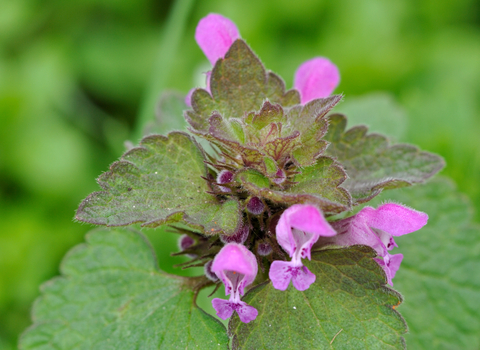
©Amy Lewis
Red dead-nettle
Red dead-nettle does not sting. It displays dense clusters of pinky-red flowers in whorls around its stem, and can be found on disturbed ground, such as roadside verges.
Join us for half price. Membership sale ends 31 Jan.

©Amy Lewis